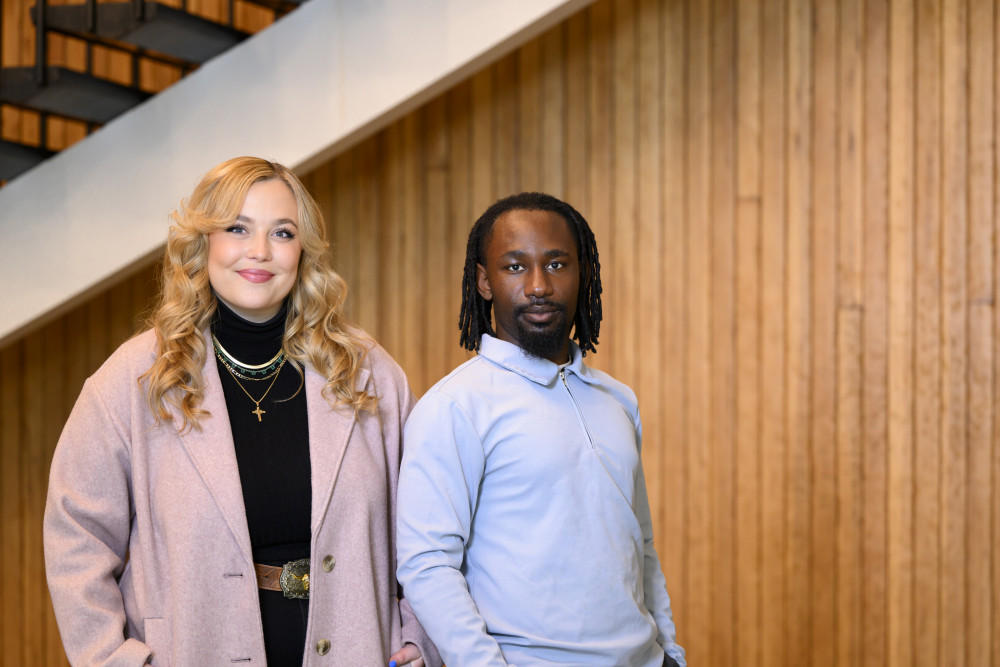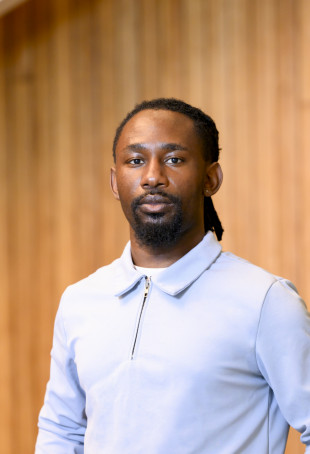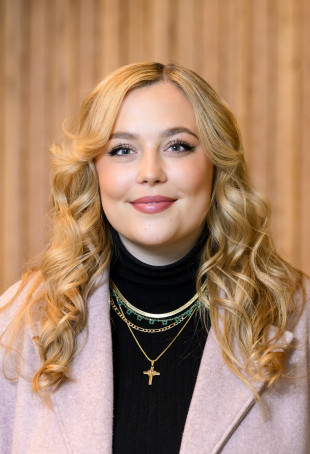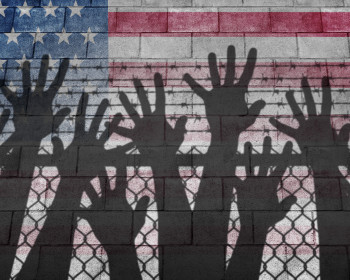International Affairs Symposium Focuses on Control
The 62nd annual Lewis & Clark International Affairs Symposium is one of the oldest student-run symposia in the country. This year’s event, which runs from April 8 to April 10, is titled Strings Attached: Tracing the Global Systems That Bind.

Credit: Nina Johnson
by Mackenzie Kier BA ’26
Lewis & Clark’s 62nd annual International Affairs Symposium will kick off on April 8 and run through April 10. This year’s event, titled Strings Attached: Tracing Global Systems That Bind, addresses the multifaceted role control plays on the global stage and the controversies inherent in its use. The event is organized around six provocative debates, each involving speakers with opposing viewpoints and moderated by a Lewis & Clark faculty member.
The symposium’s planning committee, composed entirely of students, is led by cochairs Alessandra Cicero BA ’24 and John Mbanda BA ’25. Together, they decide the theme of the symposium.
“We knew we wanted to address the complexities of control in our world today, so we arranged our theme around that idea,” says Cicero. “This theme is extremely relevant to current events and addresses topics that the L&C community is passionate about.”
- John Mbanda BA ’25
It is truly an honor to be a cochair for the International Affairs Symposium. Being entrusted with the responsibility to bring in influential speakers on topics our community deeply cares about is both a challenge and a rewarding experience.
International Affairs | French Studies | Minneapolis, Minnesota, and RwandaMore about John - Alie Cicero BA ’24
My work as cochair of the International Affairs symposium has directly complimented my work on my thesis and improved my knowledge of the field overall. It has taught me necessary life skills I’ll need for the future.
International Affairs, German (double) | Arcadia, CaliforniaMore about Alie
The symposium’s debate structure is designed to stimulate thought by embracing controversy.
“These debaters were chosen in a long and arduous process—the symposium is over a year in the making,” Cicero says. “Our committee finds these speakers, and then as cochair, I invite them to attend. We are extremely proud of the diversity of speakers coming this year. They are all completely unique individuals with experiences unlike any others.”
This year’s sessions, all held in Council Chamber of Fowler Student Center, will address the following topics.
Debate 1: Bridges or Barricades?
Do borders increase or decrease security?
Monday, April 8, 3:30–5 p.m.
Speakers
Todd Miller, an investigative journalist based in Tucson, Arizona, and Christopher Rudolf, a political scientist at American University in Washington, D.C.
L&C Moderator
Elliott Young, professor of history
Debate 2: Rights Overruled
Is humanitarian intervention worth compromising state sovereignty?
Monday, April 8, 7:30–9 p.m.
Speakers
Juan Sebastián Chamorro, a Hewlett Visiting Fellow at the Kellogg Institute for International Studies at the University of Notre Dame, Indiana, and John Bolton, who served as national security advisor under former President Donald Trump, the ambassador to the United Nations under former President George W. Bush, and the attorney general for the Civil Division under former President Ronald Reagan
L&C Moderator
Suparna Chaudhry, assistant professor of international affairs
Debate 3: New World Disorder
Are emerging powers likely to succeed in efforts to challenge the global order?
Tuesday, April 9, 3:30–5 p.m.
Speakers
Leslie Armijo, an expert in the ethics and political economy of international relations and the comparative regionalism of the global South, and Patrick Bond, an activist and author known for his work in the fields of political economy, social mobilization, and economic geography
L&C Moderator
Kyle Lascurettes, associate professor of international affairs
Debate 4: Divine Diplomacy
What role, if any, should religion play in peace building and conflict resolution?
Tuesday, April 9, 7:30–9 p.m.
Speakers
Martine Miller, executive vice president of the International Center for Religion & Diplomacy in Washington, D.C., and Jason Klocek, assistant professor at the University of Nottingham and faculty affiliate of the University of Notre Dame’s Center for the Study of Religion and Society
L&C Moderator
Paul Powers, professor of religious studies
Debate 5: Pirates and Patents
Is international intellectual property regulation a necessary protection for innovators or a form of modern imperialism?
Wednesday, April 10, 3:30–5 p.m.
Speakers
Pieter Cleppe, editor-in-chief of BrusselsReport.eu, which publishes news about the European Union and its single market, and Stephan Kinsells, the founder and director of the Center of the Study of Innovating Freedom, and was the founder and executive editor of Libertarian Papers
L&C Moderator
Elizabeth Bennett, Joseph M. Ha Associate Professor of International Affairs and program director of political economy
Debate 6: Culture Currency
Should developing states be willing to sacrifice control over their cultures for the potential economic benefits of marketization?
Wednesday, April 10, 7:30–9 p.m.
Speakers
Vladimir Snurenco, senior project manager of the Poverty Centre at the Acton Institute and professor of economics at the Calvin University in Michigan, and Elias Wahab, a professor of sociology at Lagos University in Nigeria, who has explored how global mobility and enhanced communication enable individuals to construct their identities transcending geographical constraints
L&C Moderator
Kim Cameron Dominguez, assistant professor of anthropology
“This year’s theme is unique and multifaceted,” Cicero says. “To me, it means assessing levels of control in different environments and fields. It means thinking outside of the box and analyzing perspectives not heard before.”
More Newsroom Stories
Public Relations is located in McAfee on the Undergraduate Campus.
MSC: 19
email public@lclark.edu
voice 503-768-7970
Public Relations
Lewis & Clark
615 S. Palatine Hill Road MSC 19
Portland OR 97219



